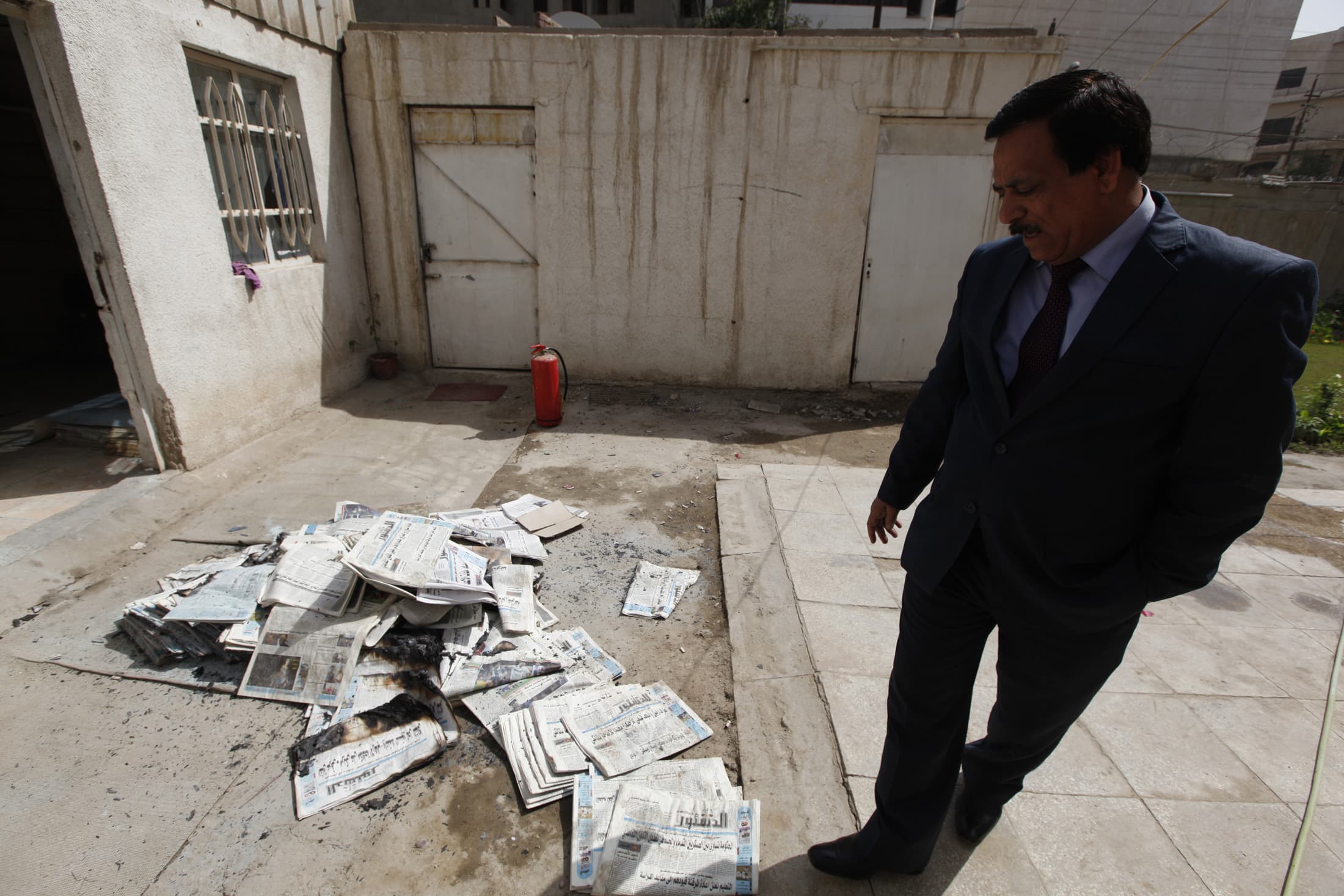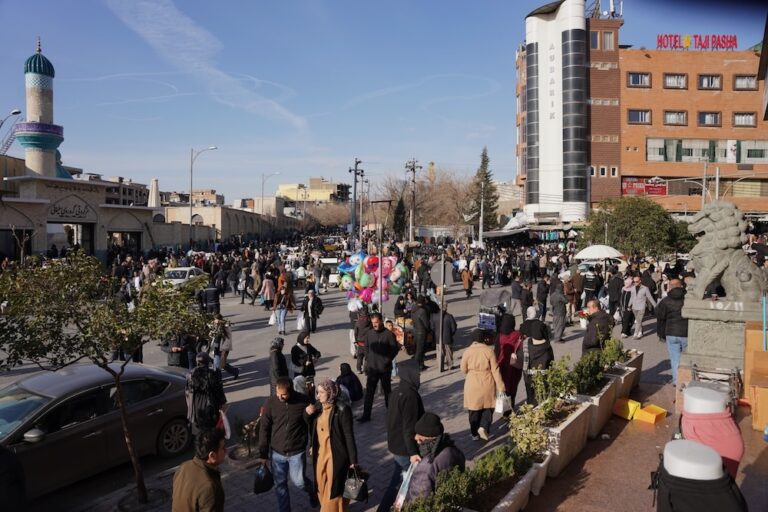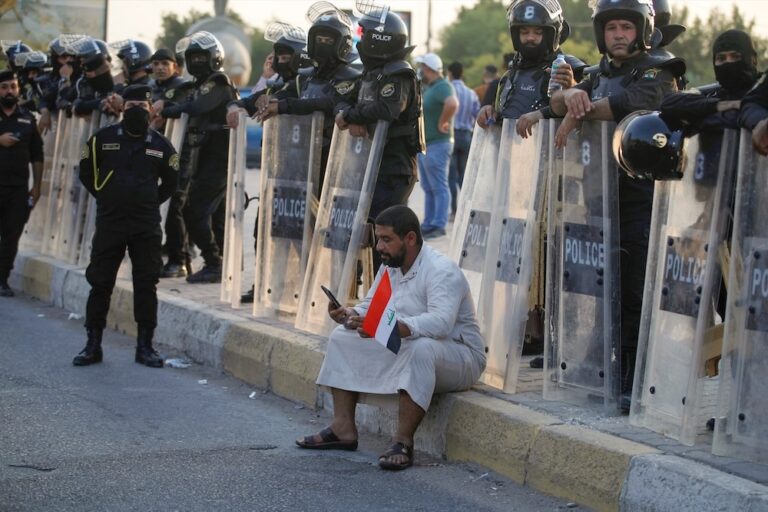Journalists at the newspapers said the men attacked staff with batons and knives, smashing furniture and equipment. Five Al Dustour journalists were injured, four with stab wounds and one because he was thrown from the roof of the building.
The International Press Institute condemned the violent attacks carried out against four Baghdad newspapers on Monday, and expressed its concern over the continued insecurity of journalists working in Iraq.
Four Baghdad newspapers – Al Parliman, Al Dustour, Al Mustaqila, and Al Nas – were attacked by gunmen on April 1, 2013, according to news reports. The attackers were said to have been Shiite fighters who were avenging recent critical reports about a leader, cleric Mahmoud Al Sarkhi.
According to The Associated Press (AP), the men who attacked Al Parliman identified themselves as Al Sarkhi “loyalists” and asked why their leader was accused of “trying to take over communal Friday prayers at one of the holy shrines of Karbala,” a city that has been the site of power struggles between Shiite militias. Unsatisfied with the editor’s explanation that it was a balanced article, the men went on a rampage, AP reported.
The other three newspapers were similarly attacked, reports say.
Journalists at the newspapers told AP the men attacked staff with batons and knives, smashing furniture and equipment. Five Al Dustour journalists were hospitalized, four with stab wounds and one because he was thrown from the roof of the building, AP reported. A newspaper spokesperson told Reuters that the paper’s archive was set on fire.
“The armed assault against journalists and newspaper offices in Baghdad is unacceptable. We condemn this barbaric attack in the strongest terms,” said IPI Executive Director Alison Bethel McKenzie. “This latest act of violence shows that Iraq continues to be a tremendously dangerous country for the media. We call on the government to guarantee the safety of all journalists, as is their responsibility.”
Four journalists were killed in Iraq in 2012, making it the second most deadly country in the Middle East after Syria, according to the IPI Death Watch.



